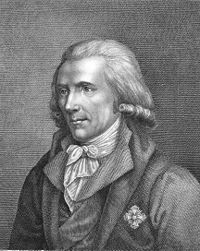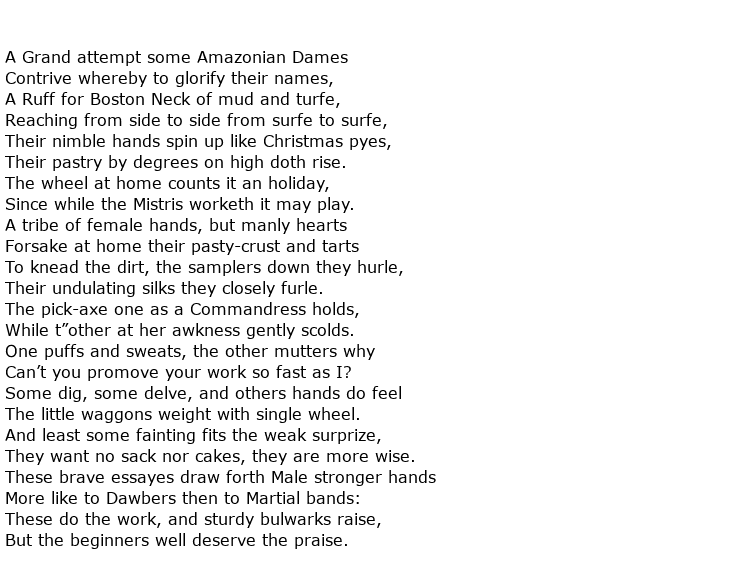 It is believed that Dr BenJamin Tompson was the first recorded American-born poet, born into a family of zealous Puritan immigrants. He seems to have stayed close to home, in the New England area, and became a schoolmaster at various schools in and around Boston. One of his students, Cotton Mather, went on to be a famous poet as well. He was also a physician and served as Town Clerk in the town of Roxbury.
It is believed that Dr BenJamin Tompson was the first recorded American-born poet, born into a family of zealous Puritan immigrants. He seems to have stayed close to home, in the New England area, and became a schoolmaster at various schools in and around Boston. One of his students, Cotton Mather, went on to be a famous poet as well. He was also a physician and served as Town Clerk in the town of Roxbury.
He was born in Braintree, Massachusetts on the 14th July 1642. He must have had a decent education, graduating from Harvard College in 1662. He clearly had a talent for writing in a long verse form and his observations of New England society, while in his thirties, brought about his most famous pieces of work. He released two collections in the year 1676, the second being a revision of the first. New England’s Crisis, followed by New England’s Tears, was an epic verse on the subject of how those elected to govern New England were managing the war with the Algonkian Indian Confederation, otherwise known as “King Philip’s war”.
He took a detailed look at the manners and morals of those around him, noting the decadence on display that inevitably brought the crisis that he saw as “God’s punishment” on the colony. The work ran to six hundred and fifty lines of rhymed pentameter couplets. He used classical allusions which are at odds with the author’s more down to earth, homely diction. It became famous as the first detailed account of a war fought on American soil.
Tompson used satire in this work and some critics have suggested that he used the likes of Quarles or Dryden as sources of inspiration from far off Europe. It was, in many ways, an exaggeration of the true situation but, no doubt, he used plenty of poetic licence to moralise about the decadence of the present as opposed to the more pure elements of the past. There is, presumably, a reference to his Puritan origins in there somewhere. Tompson certainly portrayed the people of New England in a poor light, lacking piety and valour amongst other qualities.
The above might suggest that he was a strident, outspoken man yet that was not really the case. He was, in many ways, an exceedingly modest individual. In response to critical acclaim of his famous work he countered with: “I dare not stile them poetry but truth”. He was, in effect, claiming journalist rather than poetic credit for this significant account. Historians sometimes offer a certain view of 17th century New England society that might, at times, conflict with the account that Tompson offers.
While Tompson was best known for his New England’s Crisis epic, and a number of other long pieces, he did produce shorter verses as well. Here is an example which he called On A Fortification At Boston Begun By Women. It seems to be a lesson to those who believe that wars and conflicts are only planned and executed by men. This poem describes the necessary efforts of women or, as he puts it,


Dr Benjamin Tompson died on the 13th April 1714, aged 71. His tombstone, which can be found in Roxbury, bears the following inscription:


